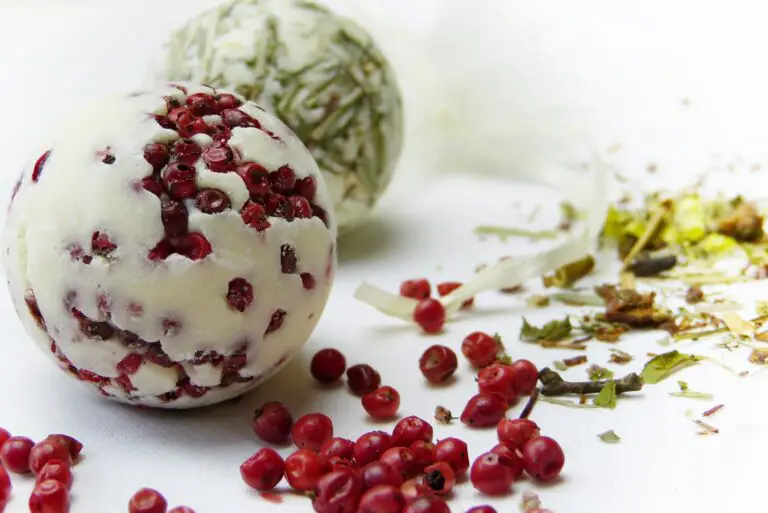The Benefits of Using Bath Salts
Looking for a relaxing way to unwind and absorb some positive energy?
Bath salts might be just what you need!
The stress of everyday life can really take a toll on our minds and bodies. But what if washing away your worries before bed was as simple as taking a bath?
While a bath won’t solve your problems, it can certainly help you relax and unwind, and that’s the first step to success.
Bath Salts – These amazing substances are made from natural purifying agents that can help you relax your tense muscles and leave you feeling rejuvenated. But don’t be fooled – when a recipe calls for “salt,” it doesn’t mean the plain old table variety.
Instead, try using Epsom salts, sea salt, kosher salt, or a combination for the best results. You can find sea salt at natural food stores or even your local grocery store, while kosher salt is usually available at Jewish specialty shops or supermarkets. And for Epsom salts, just head to your local pharmacy!
Additives
Want to add a little something extra to your homemade bath salts? Try throwing in some powdered milk, vegetable food coloring, powdered herbs, or even crystals or stones! And if you mix in some oil, you’ll end up with a luxurious salt scrub.
To store your new creation, you can use Mason jars – but keep in mind that the salt can cause the metal lids to corrode. Instead, opt for jars with glass lids and plastic seals, snap-down lids, or cork tops.
And whatever you do, never store your bath salts in a metal tin or they’ll rust! Also, keep in mind that plastic containers tend to absorb the scent of the salts, which might make it difficult to reuse.
The Main Ingredients of a Proper Bath Salt’s Fun
- Epsom salt, also known as magnesium sulfate, can be found at your local pharmacy. It’s named after the English town of Epsom, where it was first discovered. When absorbed through the skin, magnesium can help soothe muscle and joint pain, calm nerves, improve mood, and promote restful sleep.
- Sea salt or Himalayan pink salt, which you probably have in your kitchen, can also be used in your bath. These salts are rich in minerals and have a coarse, crystalline texture that can soften and nourish your skin.
- Essential oils, which are distilled from plants, can be found in the cosmetics section of your local health food store or ordered online. They are the purest and strongest scents found in nature, and are used therapeutically to promote physical and mental well-being.
- Dried herbs, such as rosemary leaves or rose petals, can be found at your local grocery store. Like essential oils, they have therapeutic properties for both the mind and body, but are more subtle. They also add a touch of color without resorting to food coloring. Using old fruit tea leaves is also a great idea.
Precautions
To make sure you don’t irritate your skin or your system, it’s generally best to start with a tablespoon to a quarter cup of bath salts in your tub. If you’re a big fan of salty soaks and want to use more, just increase the amount slowly over time. That way, you can enjoy all the benefits without any discomfort!
Ready to Try Some Recipes?
We’ll share some tips on how to prepare the necessary ingredients for one bath in several of below recipes.

Basic Cleansing Bath Salt Recipe
Let’s get started!
Feel free to use this recipe as a starting point for your own special blend of magical bath salts! The great thing is, you can mix and match any combination of sea salt, Epsom salt, or kosher salt that you like.
So get creative and find the perfect formula for your next relaxing soak!
Ingredients
- 2 cups sea salt or other salts
- 2 cups baking soda
- Glass jar with tight-fitting lid (to hold 4 cups or 32 oz)
Preparation
- First, combine all the ingredients in a blender or food processor and blend until you have a fine powder.
- Then, simply store your creation in a tightly sealed jar until you’re ready to use it.
- When it’s time to enjoy a relaxing soak, just pour ½ cup of the salts into your bath under running water.
If you’re feeling adventurous, you can also customize your bath salts by adding 3 to 5 drops of your favorite essential oil, 2 tsp of finely ground dried herbs, or even 1 to 3 drops of food coloring.
And if you have dry skin, you might want to add a teaspoon of liquid glycerin (which you can find at most drugstores) to moisturize your skin.
For an extra special touch, you can also mix in finely ground oatmeal or almonds!

Boost Energy Bath Salt Recipe
When you’re in need of a little energy boost, give this recipe a try!
Ingredients
- 1 cup sea salt
- 1 cup Epsom salt
- 3 drops orange oil
- 2 drops cinnamon oil OR one tsp ground cinnamon
- cup ground mint leaves
- Glass jar with lid, large enough to hold 2 ½ cups
- 3 drops green vegetable food coloring (optional)
Preparation
Creating your own energizing bath salts is easier than you might think! Here’s how:
- First, place your chosen salts in a blender or food processor and blend until you have a fine powder. Pour the salts into a jar and give it a good shake to make sure they’re evenly combined.
- Next, add in your essential oils and powdered herbs, then cap the jar and give it another good shake to blend everything together.
- If you’d like to add some color to your bath salts, carefully add a few drops of food coloring (remember, a little goes a long way!) and give it one final shake to blend.
- When it’s time to use your energizing bath salts, simply pour ½ cup into your tub under running water and let the magic happen!
Thoroughly mix all the ingredients in a bowl and add to the water before taking a bath. If you want to prepare the mixture for later use, transfer it to a jar or any airtight container

Relaxing Bath Salt Recipe
Sometimes it’s good to take it slow and treat yourself
Mountain Rose Herbs reports that the ancient Greeks and Romans believed in the calming power of lavender on wild lions and tigers. This belief seems to have some truth to it, as contemporary studies have shown that the sweet, flowery fragrance of lavender can considerably decrease heart rate and blood pressure, and promote relaxation. When combined with rosemary leaves and healing salts that alleviate body pains, this bath can help calm your inner tiger and promote restful sleep.
Ingredients
- 1 cup of Epsom salt
- 1/2 cup of sea salt
- 1/4 cup of dried lavender flowers
- 1 tablespoon of dried rosemary leaves
- 10-15 drops of lavender essential oil
Preparation
Thoroughly mix all ingredients in a bowl and add to the bathwater. If you want to prepare the mixture for later use, transfer it to a jar or any airtight container.

“Worries away” Bath Salt Recipe
When you’re feeling like a hot mess and need to cool off, don’t sweat it! Whip up this killer recipe for the ultimate chillaxing bath salts. Trust me, it’s like adding a scoop of chill to your tub. So sit back, relax, and soak up the good vibes like a sponge.
A bath infused with marigold is known for its ability to soften and heal the skin. It provides a soothing experience that can help you relax and prepare for restful sleep. Additionally, chamomile is a natural sleep aid and nerve tonic that has been used globally for centuries. Research from the University of Pennsylvania School of Medicine suggests that chamomile can even alleviate anxiety and depression. For an enhanced experience, it is recommended to brew a cup of chamomile tea before, during, or after taking the bath.
Ingredients
- 1 cup of Epsom salt
- 1/2 cup of sea salt
- 1/4 cup of dried marigold petals
- 1/4 cup of dried chamomile flowers
- Optional: 1 bag of chamomile tea for drinking during the bath. 😉
Preparation
Thoroughly mix all ingredients in a bowl and add to the bathwater before soaking. If you want to prepare the mixture in advance, transfer it to a jar or any airtight container.

“Romanthic Moments” Bath Salt Recipe
Perfect for those special moments with your partner…
This mixture is too gorgeous to use 😉 The rose oil’s romantic powdery aroma will both calm the mind and arouse the senses, much like the rose petals that float atop. Pink Himalayan salt, one of the purest and most mineral-dense salts on the market, will transform your bath time into a therapeutic spa experience. Don’t hesitate to relax: bath time is the ideal moment for self-care.
Ingredients
- One cup of Epsom salt,
- half a cup of pink Himalayan salt,
- half a cup of dried rose petals,
- 10-20 drops of rose oil.
Preparations
Like before, mix all the stuff in a bowl and add it to your bathwater for maximum chillaxing. If you want to save some for later, stick it in a jar or some kind of fancy container that will make you feel like a scientist in a lab.

Don’t just stand there – Do SOMETHING 🙂
The next time you feel tense in the evening, simply fill your bathtub with warm water and add some therapeutic salts, aromatherapy oils, and dried herbs. Bath salts are here to save the day! These magical mixtures of Epsom salt, sea salt, and essential oils will soothe your aches, soften your skin, and calm your nerves faster than you can say “Rub-a-dub-dub!”.
Try our five different DIY Bath Salt recipes, so you can choose your favorite flavor of relaxation.
Go ahead and treat yourself to a spa day without leaving your bathroom, and let these bath salts transport you to a world of serenity and suds!

